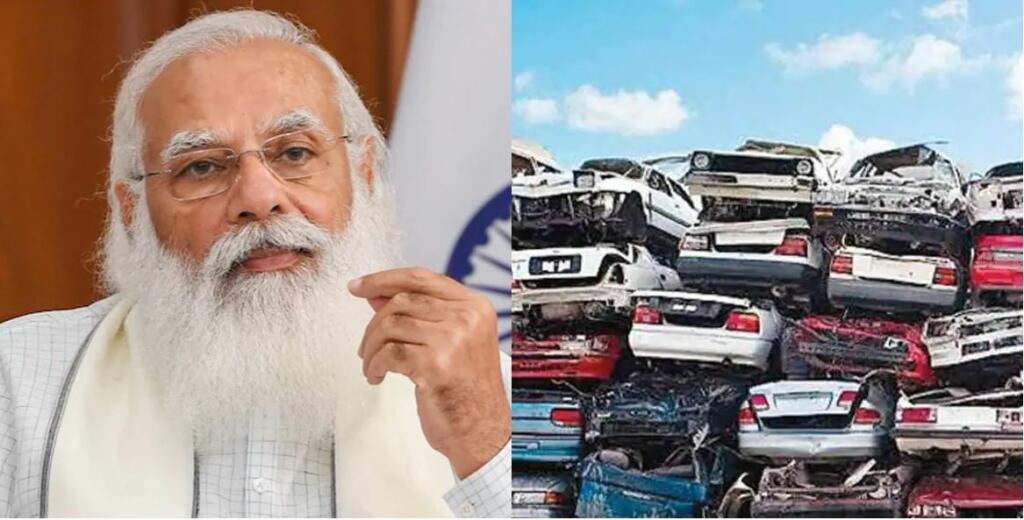Yesterday Prime Minister Modi unveiled National Automobile Scrappage Policy, which calls for all private and commercial vehicles to undergo “fitness tests” after 15 and 20 years respectively. Registration of such vehicles would be automatically cancelled if they have not obtained a fitness certificate. Moreover, all government vehicles would be mandatorily scrapped after 15 years.
Under the new automobile scrappage policy, the Ministry of Road Transport has proposed a slew of incentives including a road tax rebate of up to 25% for new personal vehicles, and 15% for new commercial vehicles, as well as a 5% discount against the scrapping certificate.
The launch of Vehicle Scrappage Policy today is a significant milestone in India’s development journey. The Investor Summit in Gujarat for setting up vehicle scrapping infrastructure opens a new range of possibilities. I would request our youth & start-ups to join this programme.
— Narendra Modi (@narendramodi) August 13, 2021
“The launch of Vehicle Scrappage Policy today is a significant milestone in India’s development journey. The Investor Summit in Gujarat for setting up vehicle scrapping infrastructure opens a new range of possibilities. I would request our youth & start-ups to join this programme,” said the Prime Minister in a tweet.
“Vehicle scrapping will help phase out unfit & polluting vehicles in an environment friendly manner. Our aim is to create a viable #circulareconomy & bring value for all stakeholders while being environmentally responsible,” he added.
The automobile scrappage policy is expected to augment the public transport system in rural as well as urban areas, help the government and the public adopt cleaner fuels; enhance outlays for developing road infrastructure and expand the Swachh Bharat Mission.
There are an estimated 6 million vehicles on Indian roads that are more than 15 years old and need an urgent replacement. Government data suggests these vehicles are the prime contributors to vehicular pollution and according to an HDFC Bank report, an estimated 9 million vehicles will fall under this category by FY21 and 28 million by FY25.
Furthermore, the government also announced that it will be spending Rs. 18,000 crore to improve public transport in cities and procure 20,000 buses in the coming years. This will give an impetus to the bus segment, where sales have crashed, and simultaneously help tackle the pollution issue.
Previously, during the budget presentation, finance minister Nirmala Sitharaman had said, “We are separately announcing a voluntary vehicle scrapping policy to phase out old and unfit vehicles. This will help in encouraging fuel-efficient environment-friendly vehicles, thereby reducing vehicular pollution and oil import bill. Vehicles would undergo fitness tests in automated fitness centres after 20 years in case of personal vehicles and after 15 years in case of commercial vehicles. Details will be shared separately.”
The Modi government has encouraged an efficient use of natural resources and promoted a circular economy in the last few years. In 2019, the government brought National Resource Efficiency Policy (NREP) to promote a circular economy and minimize waste generation.
The automobile scrappage policy proposed to set up 20 official dismantlers to recycle the used cars, and to use 25 percent recycled material in commercial and passenger vehicles by 2030. It has a target of “75% recycling rate for vehicles manufactured before 1990, 85% recycling rate for 65 vehicles manufactured between 1990 and 2000, and 90% recycling rate for vehicles 66 produced after 2000.”
India is increasingly becoming a consumerist society, but the natural resource consumption is still low; 7.42 billion tonnes compared to 34 billion tonnes of China. But it is expected to grow exponentially in upcoming years, and therefore promotion circular economy which is based on 6 R principles (reduce, reuse, recycle, refurbish, remanufacture and redesign), is important for sustainable development.
